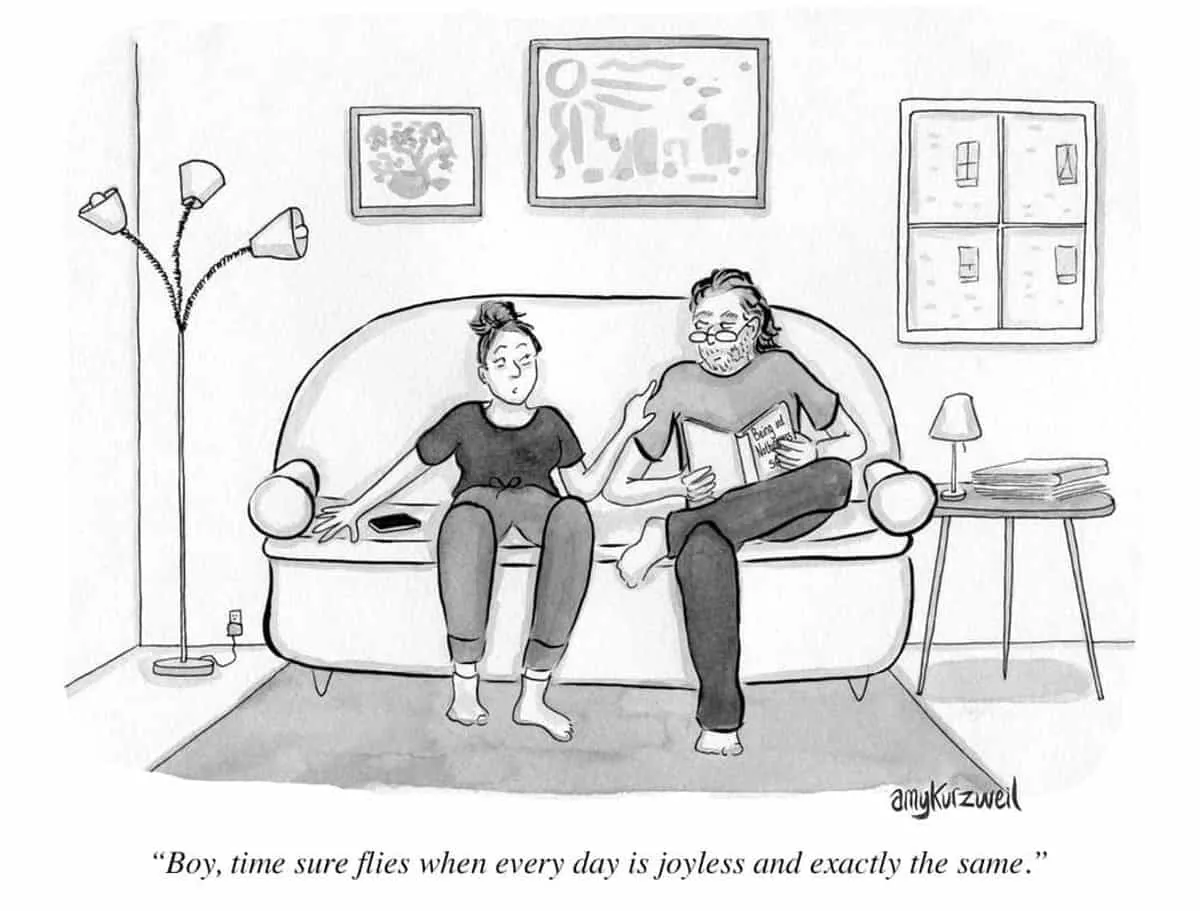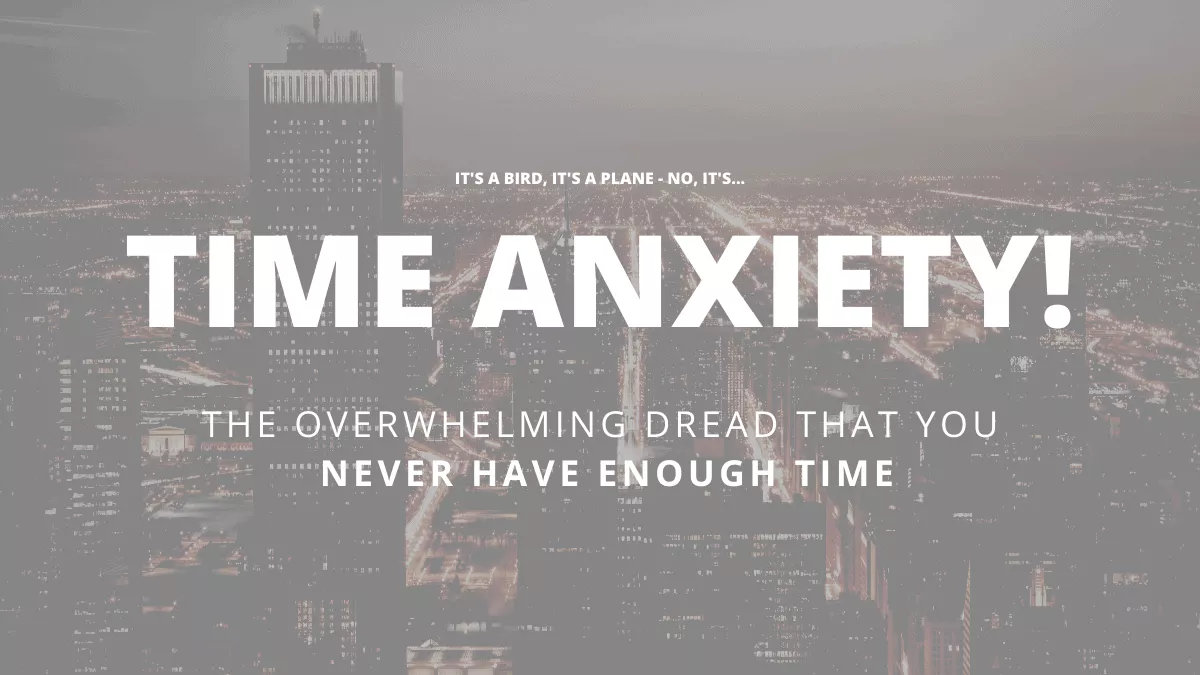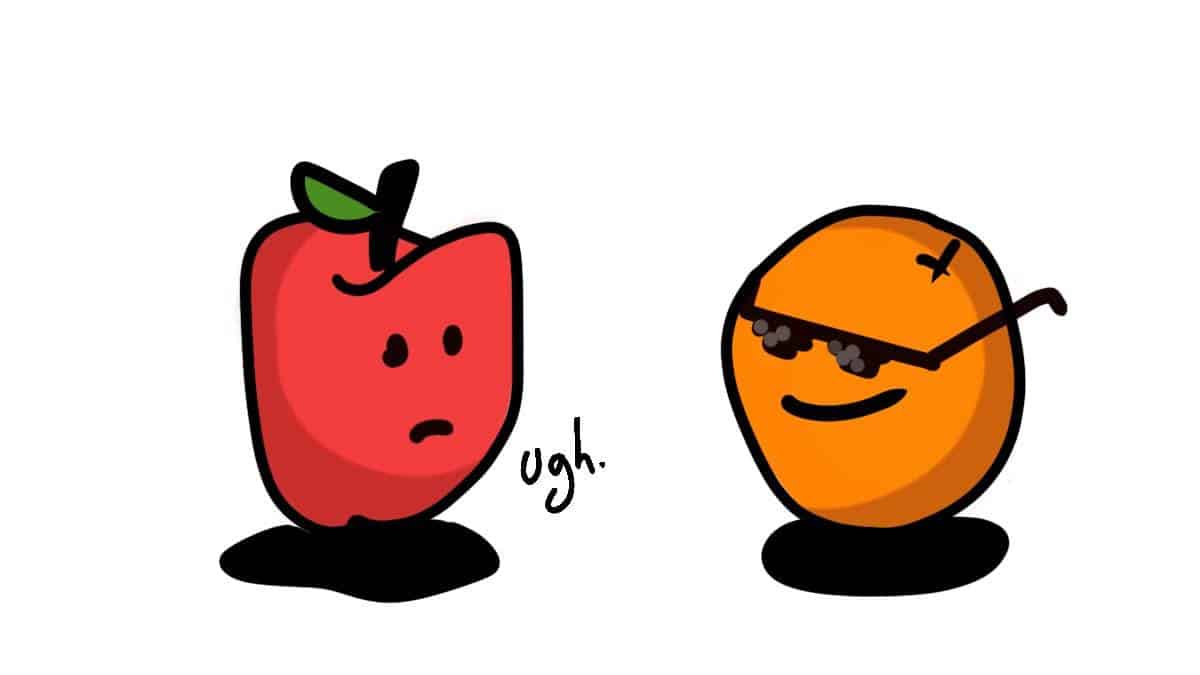
I don’t know you, but I’ll guess your 2020 2022 didn’t quite go to plan.
Not just in the bad ways. Maybe you were someone who turned your passion project into an online business, or finally went freelance.
Or did you decide, like me, to just ‘make the most of it’? When lockdown began, I resolved to pour the extra time into my freelance career and *self-improvement*. I launched an aggressive do-it-all plan. Around me, everyone was starting projects and growing six packs.
But a weird guilt took hold of me: the guilt of not doing enough in a day. No matter what I did, I couldn’t shake the feeling that I wasn’t moving fast ‘enough’, creating enough or productive enough.
What was wrong with me? Where was MY artesanal cake Instagram business???
Look – if you’re feeling guilty for ‘not doing enough’, you need to hear this too.
Wherever you are, it’s okay NOT to be where you expected yourself to be.
If I hear the words ‘unprecedented times’ again, I may scream. But here’s a term we should recognise: quarantine fatigue.
It’s the exhaustion associated with this way of living we’ve had to get used to.

And it’s hitting hard as we approach year’s end. People are realising that, whatever the memes say, the problem isn’t 2020. We need to accept that 2022 will present many more of the same challenges.
This makes it really important to reassess this ‘not-doing-enough’ guilt ASAP.
How, you ask?
In societal terms, guilt is great. It stops most of us running around stealing pets or murdering each other.
However, ‘unhealthy guilt’ is notoriously NOT useful. This is guilt without a real reason, or from something we have no control over. And it’s TERRIBLE for our health and happiness.
This makes it important to draw the line between healthy and unhealthy guilt.
Guilt from ‘not being productive enough’ usually falls into the latter category and even has its own fancy name – time anxiety. It’s the feeling that we never have enough time, and need to spend every second meaningfully.

We live in a culture that glorifies being busy and ties our self-worth to our achievements.
So, when we’re stuck indoors and achieving less, it can feel like a deeply personal failure. To quote an article by Amelia Tait:

It’s a scary and sad thing to be given all the time in the world and not even come close to fulfilling your dreams.”
Try and recognise that what you’re feeling is unhealthy and undeserved guilt. Instead, reframe the story you’re telling yourself. When the naggy voice tells you’re falling short – give credit where credit’s due. “I did X and Y today. I did my best with what I could”.
There is no right way to do a crisis and, chances are, your guilt ain’t serving you. Drop it.
Guilt for not doing enough is often due to unrealistic standards.
It’s important to hustle, but we shouldn’t set impossible expectations for how much we can do in a day.

Most humans are overly optimistic — we enter the day with an expectation and plan of getting all sorts of things done… we are not grounding our expectations in the reality of the work that we do.”
Thinking ONLY positive thoughts is a form of denial.
Similarly, if your pandemic coping mechanism is to set goals that are too optimistic, you’re doomed to failure. It’s almost a form of escapism!
Instead, try and be more strategic in how you get things done.
I used to suffer from chronic ‘evening-after shame’, i.e. going to bed feeling guilty because I hadn’t cleared my daily to-do list.
If you are consistently working hard but never finishing your to-do list, there’s a good chance your list is the problem. Not you.
Harvard Business Review suggests taming down an epic to-do list by using this handy matrix system:
Don’t be a slave to your list. It should be working for YOU!
Lastly, try and get comfortable with being a WIP. If you’re going to bed with a bunch of tasks ‘in progress’ as opposed to ‘done’, it’s not the end of the world.

In a culture of comparison, social media can trick us into thinking everyone else is operating at 200% capacity. You may feel like the only person not launching shops or folk albums (cough, Taylor Swift). Trust me, you’re not.
The only thing you’ll get by comparing yourself? Feelings of inadequacy and guilt.
I could just remind you to get off social media, but there’s another thing too.
Try to remember that comparing ourselves to other people is missing the point. Everyone is just trying to deal with the pandemic in their own way.
In The Courage to be Disliked, a philosopher and a youth chat about the concept of comparison. They note that both ‘superiority’ and ‘inferiority’ are subjective interpretations, NOT objective fact. We construct these ideas in our head.
Therefore, WE ourselves ultimately have the power to decide how we feel in relation to others.
The only person you should be comparing yourself with, is your past self.

It does not matter if one is trying to walk in front of others or walk behind them… We do not walk in order to compete with someone. It is in trying to progress past who one is now that there is value.”
Keep your eyes on your personal goals. If you’re taking steps forward, you’re progressing. No matter the pace. No matter where other people stand.
Doing more isn’t always the solution to getting more done.
In fact, taking breaks, resting and relaxing can be one of the most productive things you can do.

Stillness is what aims the archer’s arrow. It inspires new ideas. It sharpens perspective and illuminates connections. It slows the ball down so that we might hit it. It generates a vision, helps us resist the passions of the mob, makes space for gratitude and wonder. Stillness allows us to persevere. To succeed.”
While I’m not suggesting we laze around all day slurping grapes or binging Netflix, we need to recognise the importance of downtime.
This means resisting the impulse to fill up any empty moment in your day. Instead, take time to be bored, to rest and recharge. Heck, we’ve earned it this year!
I leave you with this parting quote, also from Ryan.
Dani is an editor and writer based between KL and Mexico City. Sprung from the advertising and travel industries, she’s also spent the last 10+ years freelancing for a slew of creative online businesses around the world. Connect with her via LinkedIn.